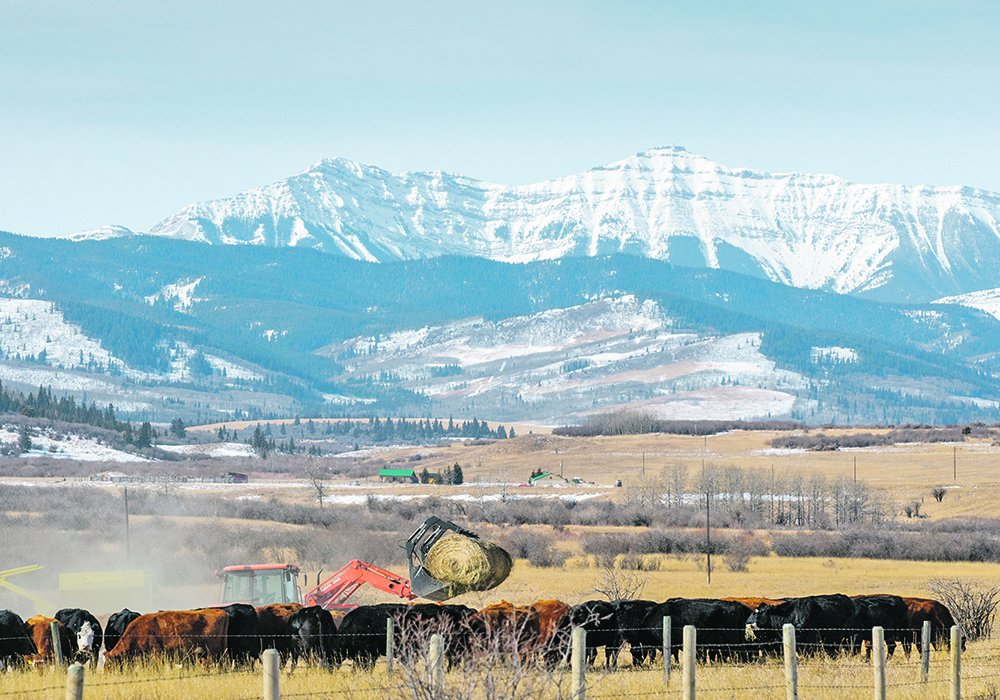Agreement to lower Canadian Cattle Association funding by $500,000 prompted by increased check-off refund requests
The Canadian Cattle Association has approved an agreement that will lower its national funding by about $500,000 this year but will provide more financial stability to Alberta Beef Producers.
The agreement, which takes effect July 1, means ABP contributions to the CCA will be based on funds ABP collects in check-off fees after producer refunds are subtracted. Previously, the CCA assessed all provinces on gross funds collected.
Brad Dubeau, general manager of ABP, said the organization appreciates the “breathing space” the CCA is giving.
Check-off refund requests from some beef producers in Alberta had substantially reduced the funding received by ABP. It said last year it may be forced to cut its contribution to CCA by as much $1 million, or about one-third of the national organization’s total funding.
Read Also

August rain welcome, but offered limited relief
Increased precipitation in August aids farmers prior to harvest in southern prairies of Canada.
“What’s important here is it allows for ABP to be able to budget appropriately because both organizations can be funded by the dollars that are available at the end of the day after refunds,” said Dubeau.
ABP members own much of the national cattle herd so any change by ABP can have a significant impact on CCA, which receives about $3 million per year from marketings or sales of cattle by producers across Canada.
A group was formed to explore the issue before the end of the current five-year funding agreement on July 1, 2023.
The new three-year agreement was approved March 24 at the annual general meeting of the CCA in Ottawa, said Dubeau.
The CCA and ABP are an essential part of “team beef” when it comes to fighting for producers, CCA general manager Ryder Lee said during a previous interview.
An annual checkoff of $4.50 per head is set aside by beef producers from the sale of cattle, which includes a non-refundable mandatory national levy of $2.50 to support initiatives such as the Beef Cattle Research Council. However, producers can apply twice per year for refunds for all or part of the remaining portion, which consists of an ABP service charge of $2 per head.
Refunds were allowed starting in 2009, forcing ABP to dip into its reserves. Although a refund form gave producers the option to keep 53 cents of their $2 to cover ABP’s expenditures to CCA under the five-year agreement, there was little uptake.
ABP was increasingly forced to adjust its budget to make sure other organizations’ budgets, including CCA, were fully funded, said Dubeau. The new agreement marks a milestone because it means everyone must operate within the available dollars, he said.
“This is a major first step in our process in taking a deeper look at ABP as an organization, and encouraging producers to engage with us on what they find of value in ABP and what changes they would like to see,” he said.
He added there are plans for a review in 2025 and sessions in 2023 and 2024 to gather input.
The goal is to return to a fully funded industry in Alberta, he said.
“Everything is on the table.”
He said there has been an increase in contributions to both the ABP and CCA as individual organizations, as well as the combination of the two. Refunds had previously approached nearly 50 percent, he said.
“And when you calculate our retained plus our contributions, our refunds have actually dropped to about 40 percent. We’re retaining approximately 60 percent when you calculate contributions into the equation, which is extremely positive.”
He credited better communication through new digital and print initiatives with beef producers as the reason things have improved.
















